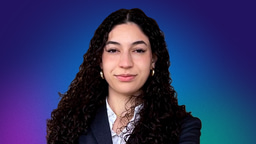Stay Uncomfortable: what I learnt about leadership in my LIA project
Before I joined the programme, I thought being a leader meant knowing what to do. Now I think it means knowing when to listen — and when to get out of the way.
During my Leadership in Action placement, I worked with a feminist NGO in Dali, Yunnan. We organised community-based events that aimed to amplify the voices of older Bai women — especially those whose crafts were at risk of being forgotten or commercialised without context. Together, we hosted storytelling circles, life-experience swaps, and workshops where local women taught traditional skills like tie-dye and 瓦猫 (clay cat figurines).
On paper, it all sounded meaningful. In practice, it was much more complicated.
For one thing, communication was hard. Not just linguistically, though some women preferred dialect — but emotionally, socially. I was younger. I was from Shanghai. I had a university education. Many of the women we worked with didn’t. Our worlds felt miles apart. I was afraid of coming across as condescending, or worse, performative — that I was there to “help preserve their culture” in some vague romanticised way.
That fear stayed with me. And it shaped how I acted.
I learned to approach with humility. To ask, not tell. To sit with silence when stories took time to surface. I learned that ethical leadership doesn’t always mean taking initiative — sometimes it means stepping back so others can lead on their own terms. One of the Bai women, a tie-dye expert in her 60s, once gently corrected me when I tried to organise a workshop schedule without asking her preferences. “Don’t just tell me when. Tell me why,” she said. I never forgot that.
I also learned that organising is emotional labour. It’s not just logistics — it’s holding space. For stories that take detours. For participants who feel unsure. For crafts that aren’t just crafts, but memories, histories, survival. I had to be flexible. I had to be present. And I had to accept that sometimes things would go wrong.
What this experience taught me, above all, is that ethical leadership isn’t about being good at everything. It’s about being good for the people around you. That means being accountable, not perfect. Curious, not controlling. It means checking your own assumptions constantly — especially when working across cultural or generational lines.
In Dali, I wasn’t a foreigner. But I wasn’t local either. That in-between-ness forced me to confront my own blind spots. I realised that “global citizenship” isn’t about how many countries you’ve been to, or whether you can speak the right buzzwords about feminism, sustainability, or inclusion. It’s about how you show up — especially in spaces that aren’t shaped for you.
Being a global citizen means learning how to hold multiple truths at once. That a Bai woman’s way of expressing feminism might look very different from mine. That preserving a cultural practice isn’t always about museums or exhibitions — it can be about making one clay cat with your granddaughter, and passing down a story while your hands are in the clay.
It also means resisting the urge to translate everything into your own terms. I learned to stop looking for neat narratives. Some of the women didn’t want to “empower” themselves in the language of NGOs or grant applications. They just wanted to gather, to talk, to be seen.
That’s what global citizenship looks like to me now: radical humility, careful listening, and a willingness to be changed by the places and people you encounter.
I’ve stopped thinking of leadership as a destination. For me, it’s now a process — one rooted in ongoing reflection, ethical discomfort, and community accountability.
Moving forward, I want to:
- Practice ethical awareness in every project I join — always asking: Who is this for? Who is missing? Who gets to speak?
-
Prioritise relational leadership, especially in cross-cultural spaces — by building trust before outcomes, and consent before collaboration
-
Continue working with grassroots organisations that challenge me to step out of institutional language and into real community work
-
Remain accountable to intersectionality — understanding how class, age, gender, ethnicity, and education intersect in the lived experiences of those I seek to support
And perhaps most importantly: I want to stay uncomfortable. Not in a punishing way, but in a way that keeps me alert — to power dynamics, to my own biases, to the possibility that “doing good” is never neutral.





Please sign in
If you are a registered user on Laidlaw Scholars Network, please sign in